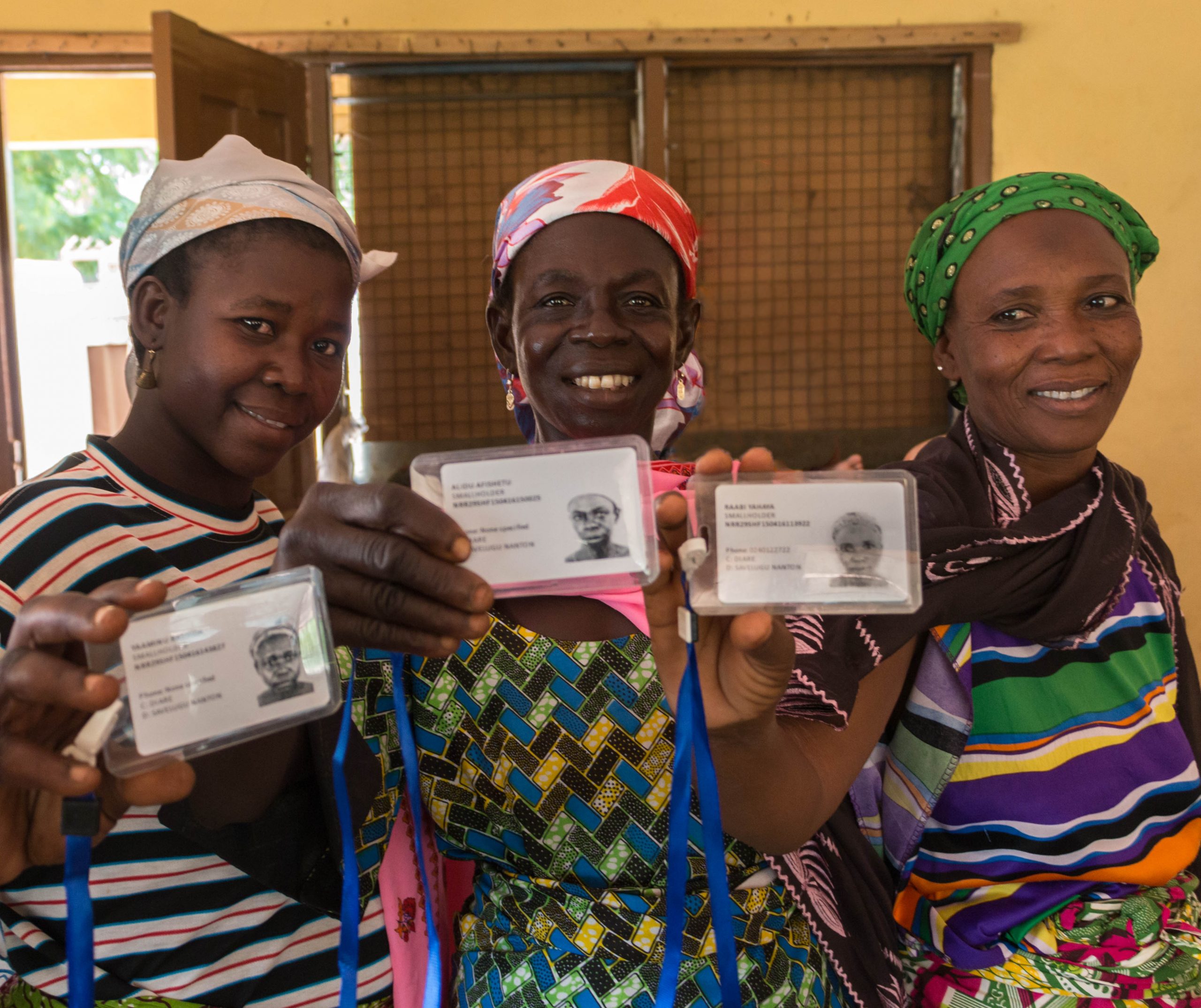
SmartCards House Participant Data, Inform Project Planning
During the implementation of the first USAID Ghana Agricultural Development and Value Chain Enhancement project (ADVANCE I), project field officers had issues tracking the number of smallholder farmers benefiting from project-sponsored training. Our work in Ghana leverages agricultural investment to scale up the maize, rice, and soybean value chains.
In Ghana, low literacy levels make it difficult to use normal attendance rosters to accurately count participants. Also, continuous tracking is complicated by the fact that most people use their family name first when registering for a training, and often omit their given name. These factors left ADVANCE II’s Monitoring & Evaluation (M&E) unit struggling to decipher which trainings were most effective and also complicated the tracking of yields and grant nominations.
ADVANCE II’s M&E department sought to solve this issue by distributing an identification card equipped with SmartCard technology to each project participant to ensure optimal data capture.

Each project participant’s picture and identification number are printed on the SmartCard while the chip within the card holds essential and sometimes private information. The chip data contains the participant’s age, gender, phone number, farm size, yield and sales history, number of dependents, number of trainings attended, and other information that is essential not just for monitoring but to also evaluate the success of the program and its future direction.
The results are positive: In 2016 alone, thanks to the SmartCards, M&E has tracked 80,000 people who have attended trainings, although, only 52,000 of these people are unique. Where once a simple head count would inflate training numbers, M&E now knows that 28,000 beneficiaries are attending trainings more than once. With 95,000 SmartCards in circulation, M&E has also been able to ask those farmers who have stopped attending trainings how ADVANCE II can improve them to encourage their return.
Although the SmartCard was created primarily for project use, it has additional benefits.

It provides a form of identification to those without one, as is often the case in rural Ghana. The cards also bring project participants a feeling of community and a sense of belonging within the NGO. They are no longer a lone, unassisted farmer. The SmartCards also boost project efficiency, ensuring that every Ghanaian Cedi is productively spent.








